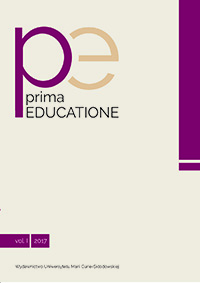Roles of Languages and Technology in Teaching
in Marginalised Communities: Perspectives and
Practices
Roles of Languages and Technology in Teaching
in Marginalised Communities: Perspectives and
Practices
Author(s): Agnes Kukulska-Hulme, SARASWATI DAWADI, RAM ASHISH GIRI, KAMAL RAJ DEVKOTA, RUBINA KHAN, Mark GavedSubject(s): School education, Educational Psychology, Sociology of Education, Distance learning / e-learning, Pedagogy
Published by: Wydawnictwo Naukowe Uniwersytetu Marii Curie-Sklodowskiej
Keywords: marginalisation; digital technology; language diversity; teachers’ experiences; secondary schools; low-resource contexts;
Summary/Abstract: Teachers in marginalised communities are known to face numerous challenges that may impact on their classroom practices. However, very little is known about their classroom practices in terms of their use oflanguage and technology. Drawing on data collected in an international research project involving teachers andschoolchildren in several marginalised communities in Bangladesh, Nepal, Senegal and Sudan, the paper reportsand reflects on the roles of languages and technology in education from the perspectives of teachers. The researchdata pertaining to teachers was collected through interviews and classroom observations and analysed throughthe lens of activity theory. Contradictions emerged between official languages used in class and the need to uselocal languages to support understanding, communication and discussion. Digital tools for teaching and learningwere highly valued but scarce, consequently some teachers filled the gap by using their own digital and financialresources. Despite some challenges using English with students, teachers’ attitudes towards English were positivedue to the perceived value of English for employment, access to information and social status. The researchcontributes to renewed awareness of marginalization and inequity and to promoting inclusivity. It contributesinsights directly from communities that have not been studied from the combined perspective of languages andtechnology use in education. We discussTeachers in marginalised communities are known to face numerous challenges that may impact on their classroom practices. However, very little is known about their classroom practices in terms of their use of language and technology. Drawing on data collected in an international research project involving teachers and schoolchildren in several marginalised communities in Bangladesh, Nepal, Senegal and Sudan, the paper reports and reflects on the roles of languages and technology in education from the perspectives of teachers. The research data pertaining to teachers was collected through interviews and classroom observations and analysed through the lens of activity theory. Contradictions emerged between official languages used in class and the need to use local languages to support understanding, communication and discussion. Digital tools for teaching and learning were highly valued but scarce, consequently some teachers filled the gap by using their own digital and financial resources. Despite some challenges using English with students, teachers’ attitudes towards English were positive due to the perceived value of English for employment, access to information and social status. The research contributes to renewed awareness of marginalization and inequity and to promoting inclusivity. It contributes insights directly from communities that have not been studied from the combined perspective of languages and technology use in education. We discuss the implications of the findings for the improvement of pedagogical practices in marginalised communities.
Journal: Prima Educatione
- Issue Year: 7/2023
- Issue No: 1
- Page Range: 103-121
- Page Count: 19
- Language: English

